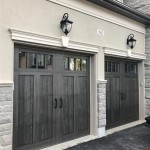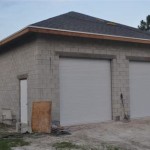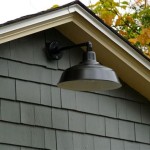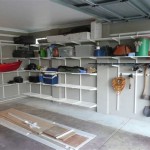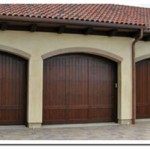Add a Garage to Your House: A Comprehensive Guide
Adding a garage to your house can be a significant investment, but it offers numerous benefits, enhancing both functionality and curb appeal. From providing secure storage for vehicles and belongings to creating valuable living space, a garage can be a valuable addition to any home. This comprehensive guide will explore the key considerations and steps involved in adding a garage to your existing house.
Planning and Design
The initial stages of adding a garage require careful planning and design. First, determine your specific needs and budget. Consider the size of the garage, including the number of vehicles you intend to park and the storage space required. Factor in the cost of materials, labor, permits, and any necessary landscaping modifications. Consult with a qualified architect or contractor to develop a detailed plan that meets your needs and complies with local building codes.
The design of your garage should complement the style of your existing house. Consider the roofline, siding materials, and overall aesthetic to ensure a seamless integration. Additionally, factor in the location of the garage, its proximity to your driveway and existing structures, and the direction of sunlight. These factors will affect both functionality and the overall look of your home.
Construction and Materials
The construction of your garage will involve a range of steps, from site preparation to finishing touches. It is essential to hire experienced and reputable contractors to handle the project. The foundation is crucial for supporting the weight of the garage and should be designed to withstand local soil conditions. The walls can be built from various materials, including concrete blocks, wood framing, or steel. Choosing the right material depends on your budget, desired aesthetic, and local building codes.
The roof of the garage requires careful consideration. Common options include gable roofs, hipped roofs, and flat roofs. The choice will depend on the style of your home and the amount of snowfall your region experiences. Garage doors play a critical role in functionality and security. There are various options available, ranging from traditional swing-up doors to modern electric roll-up doors. Consider features like insulation, security features, and automatic openers.
Utilities and Interior Finishes
Adding a garage to your home provides opportunities to enhance functionality and create a welcoming space. Installing electrical outlets, lighting fixtures, and ventilation systems is crucial for safety and comfort. Consider adding a workbench, storage cabinets, or a small workshop area to maximize the utility of the space. Depending on your needs and budget, you can also add insulation to the walls and ceiling, improving energy efficiency and comfort.
The finishing touches you choose will impact the overall look and feel of the garage. Decide on the flooring material, whether concrete, epoxy paint, or tiles. Consider the paint color and the addition of decorative elements to personalize the space. For a more polished look, consider adding drywall and finishing the walls with paint or wallpaper.
Benefits of Adding a Garage
Adding a garage to your house offers a range of benefits that can significantly enhance your lifestyle:
Increased Security and Protection
A garage provides secure storage for vehicles, protecting them from the elements, theft, and vandalism. It also offers valuable storage space for tools, equipment, seasonal items, and other possessions, keeping your home clutter-free and organized.
Enhanced Curb Appeal and Home Value
Adding a garage can significantly improve the curb appeal of your house and boost its market value. A well-designed garage complements the existing architecture, creating a harmonious and visually appealing exterior. The additional space can also increase the overall square footage of your home, making it more attractive to potential buyers.
Added Living Space and Functionality
Depending on your needs and design, a garage can be converted into a workshop, home office, gym, or even a guest room. This additional living space expands your home's functionality and provides valuable flexibility for various activities.
Adding a garage to your home is a significant investment that can provide a range of benefits. By careful planning, choosing the right materials, and hiring experienced contractors, you can create a functional and aesthetically pleasing space that enhances your home's appeal and value. Remember to comply with all building codes and regulations to ensure a safe and successful project.

How To Add A Garage Addition Ideas

What To Consider Before Planning A Garage Addition T G Builders

Home Additions 8 Ways To Add Livable Space Your

3 Things You Need To Know When Planning A Garage Addition

Will Building A Detached Garage Increase Your Home S Value Coastal Steel Structures

Add A Two Car Garage To Your Home Talon Construction Exterior Addition House

10 Garage Upgrades For Your Home Balm

Is Adding A Garage Good Idea

Do Garages Really Add Value To Your Home Popowich Company

Adding A Detached Garage To Ranch Style Home Google Search Addition Remodel
Related Posts

